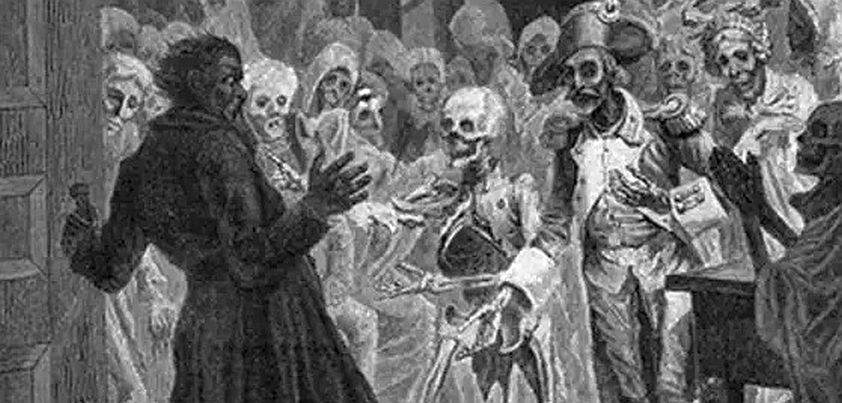 Many readers feel let down by this gloomy Alexander Pushkin story because of its seemingly abrupt ending. A Russian undertaker moves house to a more affluent Moscow suburb of predominantly German artisans. Invited to a neighbor’s party, he over-indulges in wine. After taking a proposed toast to his “corpses” as an insult to his profession, he threatens to have his own celebration the next day for those for whom I work: the orthodox dead. He wakes to find that his threat has become a reality. Or has it? Themes: life and death; racial, professional and religious prejudice; insecurity; unethical conduct/cheating.
Many readers feel let down by this gloomy Alexander Pushkin story because of its seemingly abrupt ending. A Russian undertaker moves house to a more affluent Moscow suburb of predominantly German artisans. Invited to a neighbor’s party, he over-indulges in wine. After taking a proposed toast to his “corpses” as an insult to his profession, he threatens to have his own celebration the next day for those for whom I work: the orthodox dead. He wakes to find that his threat has become a reality. Or has it? Themes: life and death; racial, professional and religious prejudice; insecurity; unethical conduct/cheating.
Some of the impact of the story is lost if one isn’t familiar with the carpentry meaning of the word “deal”. Early on, we learn that Prokhorov is unethical in being prepared to ask for his wares an exorbitant price from those who had the misfortune of needing them. A skeleton at his “corpse party” states: “Don’t you remember the retired sergeant of the Guard, Pyotr Petrovich Kurilkin, the same to whom, in the year 1799, you sold your first coffin, and a deal (pine) one at that, instead of oak, as agreed?”. From this, we earn that he is also a cheat, having substituted a cheap softwood coffin instead of the agreed oak one. The reaction of his other former clients suggests that he also cheated them.